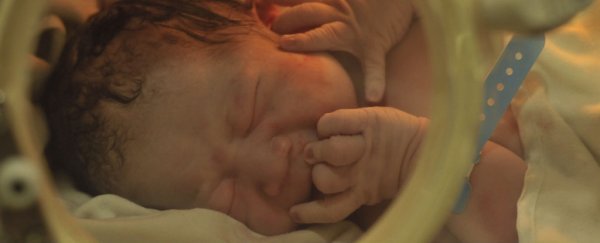Whether babies are born naturally or via caesarean section could have a lasting effect on how their brains develop, early findings from a study in the US have suggested. By analysing the growth of baby mice, scientists have identified different types of cell development based on how they were born.
When a baby is born, the brain naturally produces more cells than it needs before killing some off. Neuroscientists from Georgia State University looked at how brain cells developed in mice immediately after birth, and found increased rates of cell death in mice born via caesarean section compared to mice born vaginally. "We were struck by this peak of cell death right at birth," Nancy Forger told Brain Decoder.
The research is still at the preliminary stage, but it collaborates to what we already know about the way the nervous system grows in the first few years of life. But why exactly would the two methods of birth have such different effects? It's too early to say, but one possibility is that it's connected to the way that our bacteria-based microbiomes are passed on to us by our mothers.
Depending on the birth method, these can come from vaginal microbiota or from skin-dwelling species, such as Lactobacillus and Staphylococcus, previous research has shown. Scientists think that this has a lasting effect on our immune system, and the researchers from Georgia State want to add brain development to that list as well.
They also found that the c-section mice were on average larger than their counterparts - which backs up earlier research into links between obesity and type of birth method - and quieter. If these same connections can be found in human babies, we might have to rethink our approach to caesarean sections: the next step is to try and confirm a link between the immune cells of the brain - called the microglia - and the rate at which cells die off.
During a normal labour process, babies are exposed to certain biological processes, such as a rush of hormones, that never kick in if labour doesn't start. Scientists are now busy trying to work out exactly what the long-term effects of a c-section are and how we might be able to compensate for it using drugs administered after birth.
The researchers say a close look at the consequences of caesarean birth is necessary, with some 30 percent of babies born in the US delivered this way (in other countries, the rate is even higher). As the delivery method is both a personal and a medical decision for the mother, having the full facts available before a choice is made is important.
Their initial findings have now been presented to the Society for Neuroscience.
